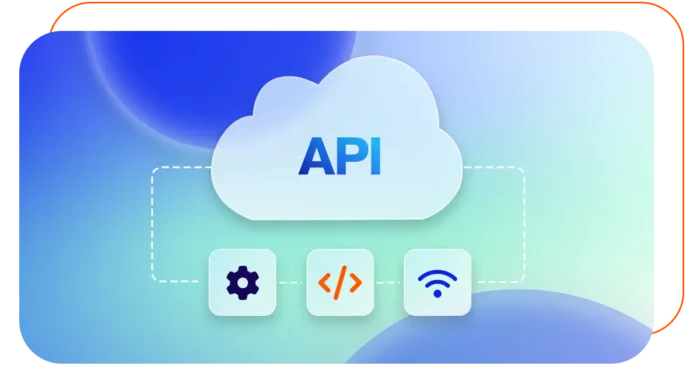What is a Digital Transformation Platform?
A digital transformation platform is the backbone of modern businesses. It drives change by enabling organizations to evolve, innovate, and meet the demands of today’s fast-paced digital world. This platform integrates various technologies and tools, allowing companies to transition from traditional methods to more agile, data-driven processes. In the SaaS industry, these platforms are essential for staying competitive.
At its core, a digital transformation platform is designed to support business growth. It combines capabilities like API management, data analytics, process automation, and customer experience management. This holistic approach empowers businesses to operate more efficiently, improve customer interactions, and ensure security and compliance. In a rapidly changing market, having a robust digital transformation platform is not just an option—it’s a necessity.
A digital transformation platform is not just a collection of tools; it’s a strategic enabler that aligns technology with business objectives. To fully harness its potential, companies must ensure that the platform encompasses critical capabilities that drive efficiency, innovation, and growth. The following sections outline the five must-have capabilities that any digital transformation platform should offer to truly transform an organization.

Integration and API Management
Integration and API management are fundamental components of a digital transformation platform. In the SaaS industry, where different software systems must work together seamlessly, integration is key. APIs, or Application Programming Interfaces, allow various software applications to communicate, exchange data, and perform functions without manual intervention.
For enterprise companies aiming to scale, managing these integrations efficiently is crucial. A robust digital transformation platform should provide tools for API management, enabling businesses to connect their products and services with third-party solutions. This capability not only accelerates the development process but ensures that all systems within the organization are synchronized.
Additionally, API management supports flexibility. Companies can easily add new functionalities, integrate with partner technologies, or adapt to changing business needs. By streamlining these processes, businesses can focus on innovation rather than being bogged down by technical challenges.

Data and Analytics Layer
The data and analytics layer is another must-have capability of a digital transformation platform. In the SaaS industry, data drives decisions, strategy, and growth. A platform that offers advanced analytics helps businesses harness the power of data to gain insights, predict trends, and make informed decisions.
With a comprehensive analytics layer, companies can monitor their performance in real-time. This includes tracking key metrics like customer engagement, product usage, and revenue growth. By analyzing this data, businesses can identify areas for improvement, optimize their offerings, and enhance the overall customer experience.
Data-driven decision-making is essential for staying competitive. In a digital transformation journey, access to accurate, up-to-date information is vital. A strong data and analytics layer within a digital transformation platform ensures companies can leverage data to drive innovation and achieve their business goals.

Process Automation and Orchestration
Process automation and orchestration are critical for operational efficiency. In the SaaS industry, where agility and speed are paramount, automating routine tasks can significantly improve productivity. A digital transformation platform should provide robust automation tools that streamline business processes, reduce errors, and free up resources for more strategic activities.
Automation can be applied across various business functions, from marketing and sales to customer support and finance. By automating repetitive tasks, companies can reduce the time and effort required to complete them. This leads to faster turnaround times, improved accuracy, and lower operational costs.
Orchestration, on the other hand, ensures that automated processes work together seamlessly. A digital transformation platform should offer orchestration capabilities that allow businesses to manage complex workflows, coordinate tasks across different systems, and ensure that all processes are aligned with the company’s overall strategy.
In a digital-first world, the ability to automate and orchestrate processes is a competitive advantage. It enables companies to respond quickly to market changes, scale operations efficiently, and deliver better products and services to their customers.

Customer Experience Management
Customer experience management (CXM) is a crucial component of a digital transformation platform. In the SaaS industry, where customer satisfaction is closely tied to retention and growth, managing the customer experience effectively is vital. A digital transformation platform should provide tools that help businesses understand, engage, and delight their customers at every touchpoint.
CXM involves more than just responding to customer inquiries. It’s about creating a cohesive and personalized experience across all channels, from the website and mobile apps to email and social media. A robust digital transformation platform should offer features like customer journey mapping, personalization engines, and real-time feedback mechanisms to enhance customer interactions.
By leveraging these tools, companies can better understand their customers’ needs, preferences, and pain points. This insight allows businesses to tailor their offerings, improve customer support, and build stronger relationships. In a competitive market, a superior customer experience can be a key differentiator.
Effective CXM drives customer loyalty. When customers have positive experiences, they are more likely to stay with a brand, recommend it to others, and contribute to its growth. For SaaS companies, where recurring revenue is critical, investing in customer experience management through a digital transformation platform is essential.

Security, Governance, and Compliance
Security, governance, and compliance are non-negotiable aspects of any digital transformation platform. In the SaaS industry, where data breaches and regulatory violations can have severe consequences, ensuring the security and compliance of all digital assets is paramount.
A digital transformation platform must provide robust security features to protect sensitive data and ensure compliance with industry regulations. This includes encryption, access controls, and monitoring tools that detect and respond to potential threats in real-time. By implementing these security measures, businesses can safeguard their operations and maintain customer trust.
Governance, on the other hand, involves establishing policies and procedures that guide how technology is used within the organization. A digital transformation platform should offer governance tools that help businesses enforce these policies, manage risk, and ensure that all digital initiatives align with the company’s objectives.
Compliance is also a critical consideration. With regulations like GDPR and CCPA, companies must ensure that their digital transformation efforts comply with legal requirements. A digital transformation platform should provide compliance management features that help businesses track, report, and adhere to these regulations.
In a world where data privacy and security are top priorities, having a digital transformation platform with strong security, governance, and compliance capabilities is essential. It not only protects the business from potential threats but also ensures that the company can operate confidently in a regulated environment.
Transform with CloudBlue

Wrapping Up
A digital transformation platform is a powerful tool for any SaaS company looking to thrive in today’s digital landscape. By integrating essential capabilities like API management, data analytics, process automation, customer experience management, and security, businesses can accelerate their digital transformation journey and achieve their goals more efficiently.
In an era where change is constant, having a robust digital transformation platform is not just a competitive advantage—it’s a necessity. It empowers businesses to innovate, scale, and deliver exceptional value to their customers. As companies continue to navigate the complexities of the digital age, investing in the right digital transformation platform will be key to their success.













